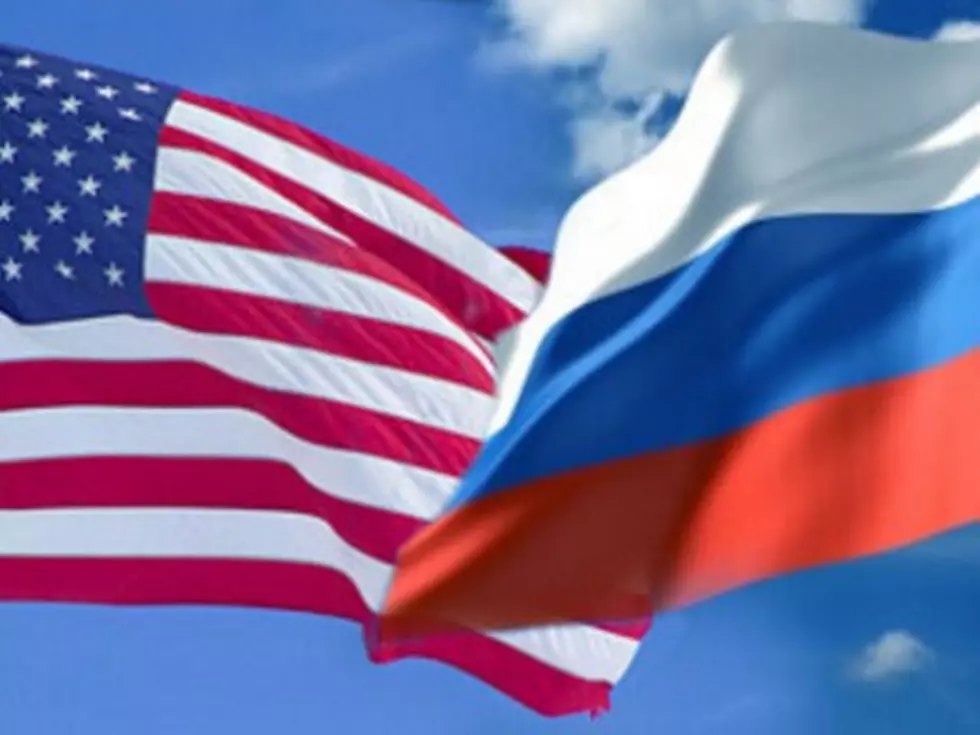
Russia attacks Ukraine, bringing war back to Europe
(CN) — A major war in Europe broke out in the early hours of Wednesday when Russia launched a full-scale attack against Ukraine, bombing airports and military installations and sending in troops and tanks.
By afternoon, there were reports of multiple casualties, including some civilians, and numerous missile strikes against Kyiv, the capital, and other Ukrainian cities. But information about what was happening on the ground was limited, and details about the full extent of the invasion and state of battle were unclear.
The fighting seemed concentrated in the disputed eastern regions of Ukraine, but there were fears that Russian President Vladimir Putin was planning to seize as much of Ukraine as he possibly can.
Russia's attack on Ukraine may mark what many see as a definitive rupture in world politics between the East and the West and a point of no return in a new Cold War.
Putin launched the multipronged attack after a early morning speech in which he blasted the United States as an “empire of lies” that's wreaked havoc with its military campaigns in the former Yugoslavia, Iraq and Libya. He also painted the expansion of NATO east and attempts to get Ukraine into the military pact as a threat against Russia.
Ukrainian President Volodymyr Zelenskyy called on his country's armed forces to fight and he urged citizens to take up arms and defend their country's independence.
Putin's military invasion of Ukraine was immediately condemned by the West and its allies, who vowed to cripple Russia's economy and weaken Putin's regime with the harshest of sanctions.
Though NATO has said it has no plans to send troops into Ukraine to protect the country, the alliance has stepped up shipments of military equipment to Kyiv and helped train its army.
“We condemn this barbaric attack and the cynical arguments to justify it,” said Ursula von der Leyen, the president of the European Commission. “It is President Putin who is bringing war back to Europe and in these dark hours the European Union and its people stand by Ukraine and its people.”
Von der Leyen said the package of sanctions against Russia will be “massive and targeted” to hit strategic economic sectors, block Russia's access to vital technologies and markets, freeze Russian assets in the EU and forbid Russian banks from trading in Europe's financial markets.
“We will weaken Russia's economic base and its capacity to modernize,” von der Leyen vowed.
“We are facing an unprecedented act of aggression by the Russian leadership against a sovereign, independent country,” she said. “Russia's target is not only Donbas, the target is not only Ukraine, the target is the stability in Europe and the whole of the international peace order and we will hold President Putin accountable for that.”
But this massive wave of sanctions and Western condemnation may do little to deter Putin. His country has already been under harsh sanctions, and many experts believe he's prepared to try to weather the economic punishment.
Putin's attack comes after weeks of diplomacy that saw the U.S. and its NATO allies anger the Kremlin by not agreeing to consider withdrawing NATO troops from Russia's borders and keeping the former Soviet republics of Ukraine and Georgia out of the anti-Russian military pact.
“He's probably taken the biggest gamble of his political career,” said Tony Brenton, a former British ambassador to Russia, speaking about Putin's invasion on Sky News television.
Brenton said Putin's huge gamble comes after he apparently saw no alternative. Although Putin is at fault, Brenton said the West too had a big role in this disaster by not taking the Kremlin's security concerns into consideration.
“It's an appalling breach of international law, it's a major shift in the way we do business in Europe, and the world is made significantly worse by it, and Putin is a major agent of it,” he said.
“We never really made any concessions at all to his demands, negotiations broke down and this is where we now are,” he said. “So there's a certain unwillingness by the West to recognize how seriously Putin takes this issue.”
In Putin's calculations, Brenton said, the damage the sanctions will do are worth enduring to ensure national security.
“The Russian government and Putin in particular don't take sanctions seriously,” he said. “Not because they dismiss the potential economic damage they can do, but because they take Russian national security much more seriously than they take Russian economic welfare.”
Brenton said Russia will continue to do business with China, India, Middle Eastern countries and many others that will not shun Russia and continue to see it as a mighty and important country.
“People talking about getting the whole world together to oppose Putin is obviously unrealistic,” Brenton said. “What is going on here in a way is a demonstration of the diminishing clout that the West holds over world affairs compared to where we were actually quite recently five or 10 years ago.”
He added: “The measure of being a serious power isn't how moral you are, it's how strong you are. And Russia has demonstrated, I'm afraid, significant political will and, depending on how the war goes, significant military capacity to make itself felt in the world.”
Courthouse News reporter Cain Burdeau is based in the European Union.
